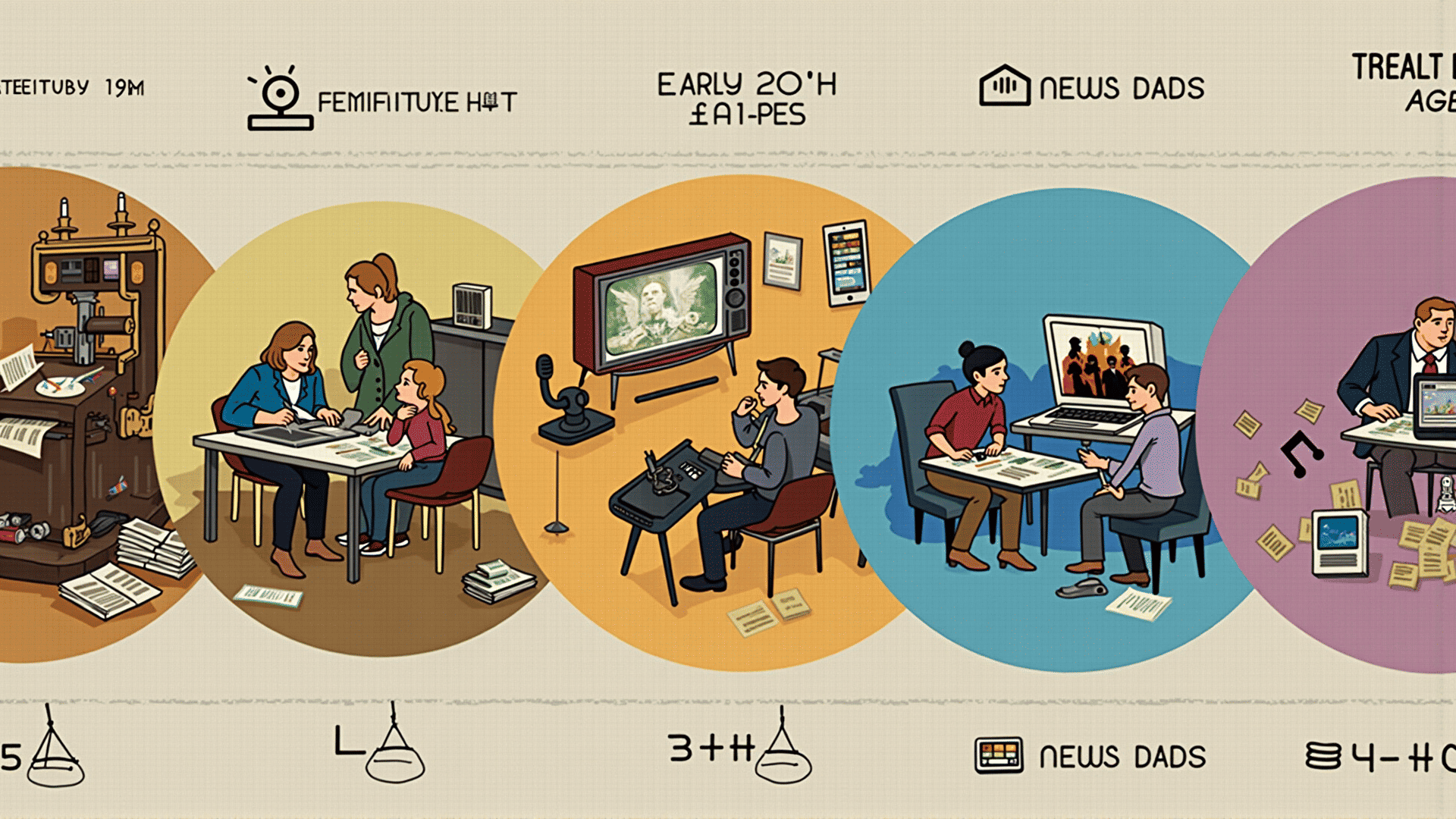The history of media is a narrative of profound transformation, reflecting both technological advancements and the shifting societal landscape. From the earliest forms of communication to the interconnected digital world of today, media has played a pivotal role in shaping culture, politics, and public perception.
Early Beginnings: Oral Tradition and Manuscripts
The story of media begins with oral traditions, where storytelling served as the primary means of preserving history and disseminating information. In these early societies, bards and storytellers were the key conveyors of culture and knowledge, passing stories and lessons down through generations.
The invention of writing marked a significant shift, allowing for the storage and distribution of information in a more permanent form. Manuscripts, initially inscribed on clay tablets or papyrus, empowered societies to transcribe religious texts, commercial records, and historical chronicles, beginning a slow process of cultural dissemination across distant regions.
The Printing Press Revolution
The introduction of the printing press by Johannes Gutenberg in the mid-15th century was a turning point. It democratized access to information and made it possible to produce books and pamphlets on a scale previously unimaginable. This revolution fueled the spread of Renaissance, scientific, and religious ideas, and laid the groundwork for the modern knowledge-based society. The press moved information from the elite scribe to the broader public, contributing significantly to emergent literacy and education.
The Rise of Mass Media
As time progressed, the 19th century saw further evolutions with the birth of mass media. Newspapers became the staple of information dissemination, catalyzing public discourse. The public's thirst for news saw an increase in newspaper circulation, influencing political landscapes and social change movements.
Broadcasting then arrived in the 20th century with the advent of radio, followed closely by television. These marvels enabled real-time reporting and brought news, music, and drama directly into people’s homes, creating shared cultural experiences on a national and international scale. Moving images and sound became powerful tools of engagement, creating genres and stars that shaped cultural identities.
The Digital Revolution
The latter part of the 20th century heralded the digital age, transforming how media is consumed and produced. The internet rapidly became the central hub for information and communication, enabling global connectivity. Traditional media faced challenges as online platforms emerged, allowing for instant updates and interactive engagement. Social networks further decentralized information dissemination, giving individuals and communities a powerful voice in the public sphere.
The rise of digital technology also brought new forms of creative expression. From blogs and podcasts to video sharing and streaming services, the possibilities seemed endless. This proliferation of platforms led to an unprecedented diversification of content types and personal choices, empowering users to consume media in highly individual ways.
Impact on Society
Throughout these transformations, media has played an influential role in shaping public opinion and societal norms. It has the power to educate, entertain, and inform, but also to mislead and manipulate. As media continues to evolve, it prompts ongoing debates about its role and responsibilities in an open society, especially in the age of rapid information and misinformation.
In conclusion, the evolution of media is a testament to human innovation and adaptability. From oral traditions to digital landscapes, media continues to be a driving force in our lives, reflecting our continuous journey towards greater understanding and connectivity. As we look to the future, the balance between creativity, accuracy, and ethical responsibility will remain central to ensuring that media serves as a positive force for society.
